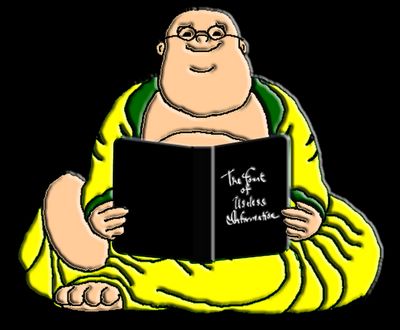Today at The Fount, we have the first of several reviews I've been too lazy to write recently.
I am a member of a book club with a few of my coworkers, and the most recent book club selection was She's Come Undone by Wally Lamb. This book is told from the perspective of a young girl named Dolores and follows her story from when she was very young to mid-life.
This, I believe, brings out the largest flaw in the book. Wally Lamb is a man, who is attempting to write as if he were a woman. He does so poorly. I only managed to get a few pages into the book before thinking that this was obviously a man who is not writing as if he were a woman, but a man who is writing the way he believes a woman thinks. The author went out of his way to describe everything in terms of senses, whether they were applicable or not. Since women tend to be more sensuous than men, even the smallest of experiences were described in tastes, smells, feel, sounds. While this may have been distracting, the situation became worse anytime the story reached an large or life-changing event and the author decided to turn up the volume on the "don't forget I'm a woman writing style." Another issue with the author writing from the perspective of a woman was simply in the nature of the story. As I stated earlier, the book followed Dolores from her early childhood to adulthood. As we see the progression toward an older adolescent and adult, her perceptions about the opposite sex change and, still using his hyper-feminized writing style, he describes her thoughts and experiences in ways that are best described as creepy.
In addition to the writing style was the fact that in the entire book, not a single character is likeable. Dolores herself is a brat as a child and as an adult refuses to move beyond her childhood. Her dad is a philandering, absentee father. Her mother is irresponsible and more like another child. Her grandmother is harsh, a racist and completely emotionally unavailable. Toward the very end of the book we are introduced to one character who is at least a little likeable, but who seems to have horrible taste in people. Having characters that the reader dislikes does not mean that a story is bad. If the characters are awful people, the story and the writing need to be that much better to make up for it. Throughout the entire book, I felt that it would have been nice if there was one person (just one, that's all I ask) that actually was able to comprehend the word transcendence.
The Verdict: Oprah may have recommended this book, but I certainly won't.
Until later...
May 14, 2005
Book Review: She's Come Undone
Subscribe to:
Post Comments (Atom)


No comments:
Post a Comment